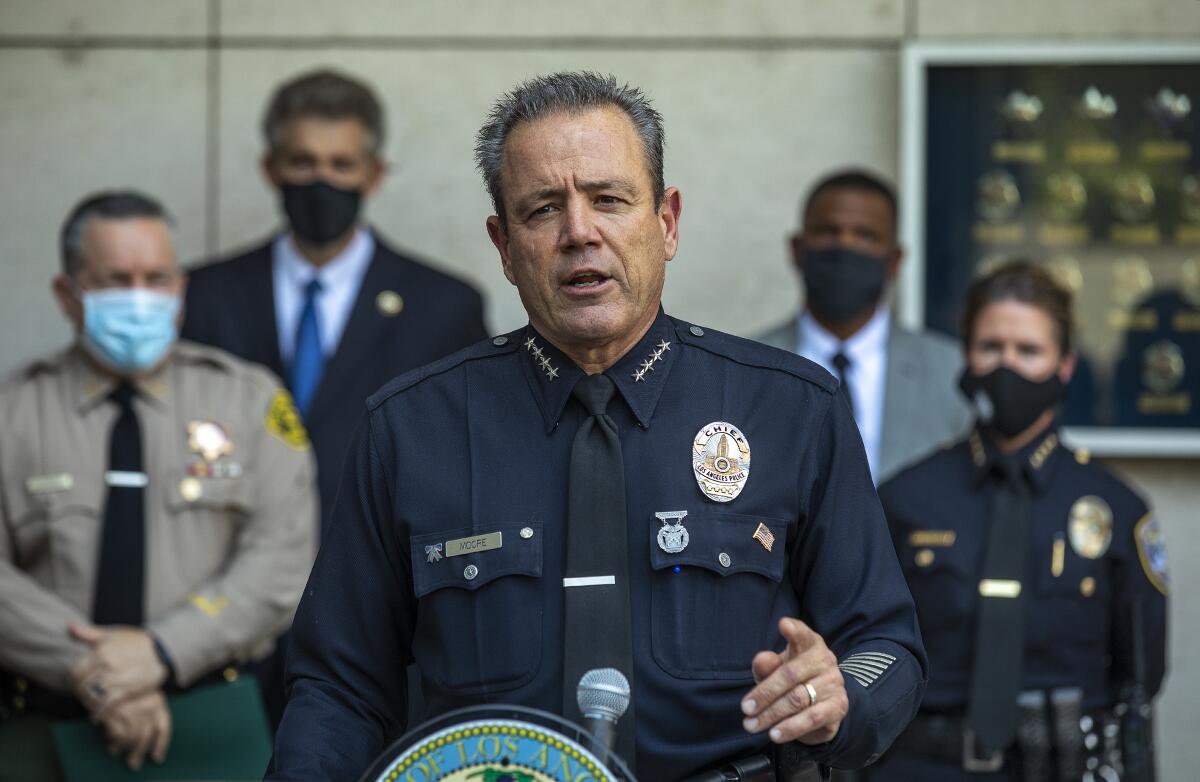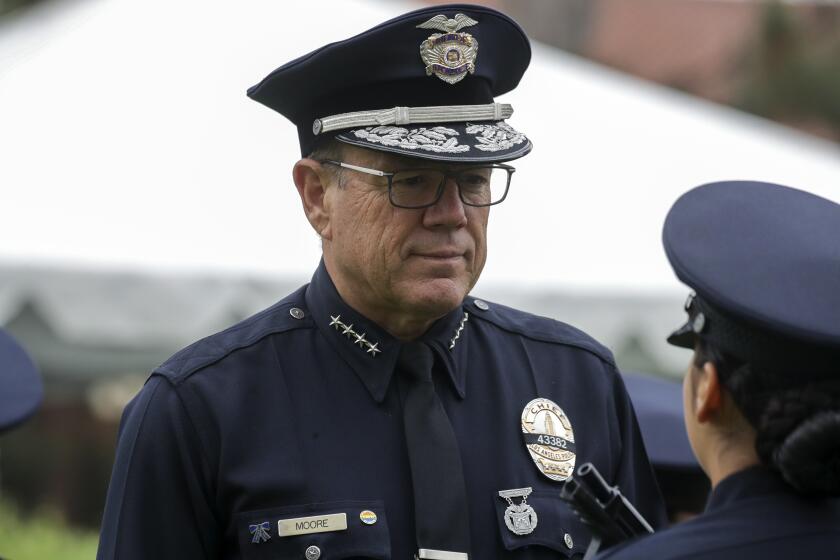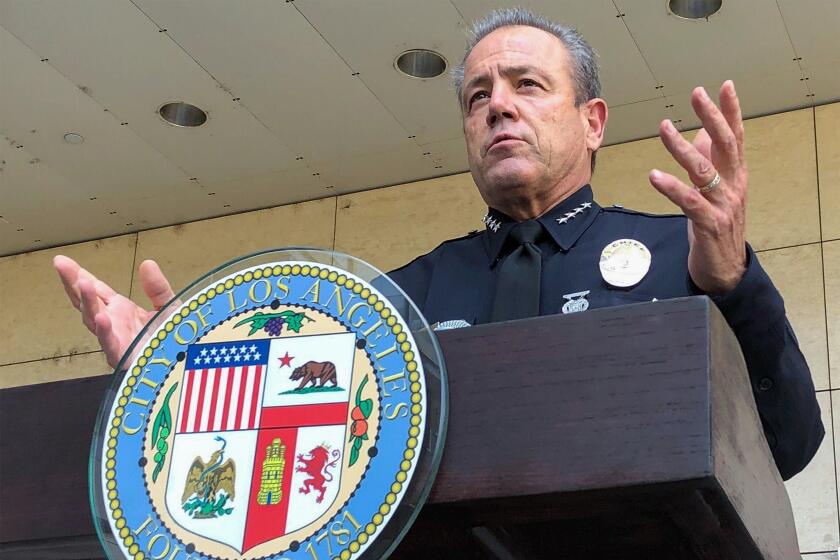Editorial: Bass bungled her first test on public safety

- Share via
Mayor Karen Bass wrote a letter to members of the Police Commission on Monday urging them to reappoint Police Chief Michel Moore to a second five-year term. But she did not publicly post that letter until Tuesday — not until after the commission had already met behind closed doors and approved the reappointment. By the time Angelenos first learned her stance on Moore, it was a done deal.
Bass thus bungled one of her most important duties as mayor of the nation’s second-largest city. She turned what should have been a public process for selecting the chief of police into an insider’s game. She allowed the commission to rush the reappointment, cutting the formal evaluation period from three months to just one. She failed to publicly lay out her criteria for reappointment with real details, and even after the decision was made she was disturbingly vague about what she expects of his future performance.
This is particularly disappointing because public safety is Bass’ calling card. She built her career around critique of police practices, first as a community organizer and later as a lawmaker. Police reform was her signature legislative effort in Congress. With violent crime spiking and the LAPD under justifiable scrutiny for questionable uses of force, high-profile misconduct, destructive errors and controversial deployment decisions, voters chose Bass for mayor in large part to articulate a new vision for policing in Los Angeles. In the rushed reappointment of Moore, she did not measure him against the reform program she has yet to present.
The decision on whether to reappoint LAPD Chief Michel Moore to a second five-year term is about more than him. It’s about L.A.’s entire approach to public safety.
Voters also expect Bass to address homelessness, and on that issue she has made some strides in her first two months. It might be argued that she hasn’t had enough time to develop a policing program that details her policing philosophy, changes in practice, performance standards, goals, timetables and budget, or to appoint her own top public safety advisors, and that she gained some needed time by relying on her predecessor’s commissioners and chief. She named her deputy mayor for community safety only on Monday.
It might also be argued that the chief’s pledge to step down after two or three years, rather than to serve the full term, is a convenience to Bass, who will now have the benefit of at least a couple of years to search for a chief of her own.
And it is true that under the City Charter, the mayor has no formal role in reappointing the chief, unless the commission fails to act. The charter assigns her the power to appoint a chief to a first term, but the commission decides on a second.
But let’s be frank. Moore was reappointed because Bass supported him. The commission would not have acted in defiance of her wishes. Moore would not have written on Dec. 27 that he had Bass’ full support if he didn’t, even though he had to later walk back that statement, probably because it revealed too much about agreements already reached out of public view.
Chief Michel Moore’s plan not to serve out a full second term is exactly the kind of thing L.A. has a right to hear before any decision on reappointment.
Furthermore, she’s the mayor. Angelenos expect her to be able to multitask, to tackle homelessness, roll out a public safety plan and explain how the police chief — now her chief — is the right fit for that plan, all at the same time.
Both of them will have to do a better job explaining their plans for the department and for public safety for the years ahead. In her letter to the commission, Bass said she and Moore agreed on some goals that are so obvious as to be barely worth mentioning, such as “reducing crime,” as well as some that are so vague as to be meaningless sloganeering, such as “community policing.” Moore told the commissioners his goals include increasing the number of psychiatric emergency teams and treatment facilities. In other words, more action by City Hall and the county, not him or his officers. It’s as if the chief were issuing public safety directives to elected officials rather than the other way around.
Is Moore the right LAPD chief? The question is moot. He’s the chief we have, and will have for a while (a supermajority of the City Council could override the reappointment, but that’s unlikely). He will do what is right in his own eyes — until the mayor is ready to better lay out her public safety path for Los Angeles.
More to Read
A cure for the common opinion
Get thought-provoking perspectives with our weekly newsletter.
You may occasionally receive promotional content from the Los Angeles Times.












